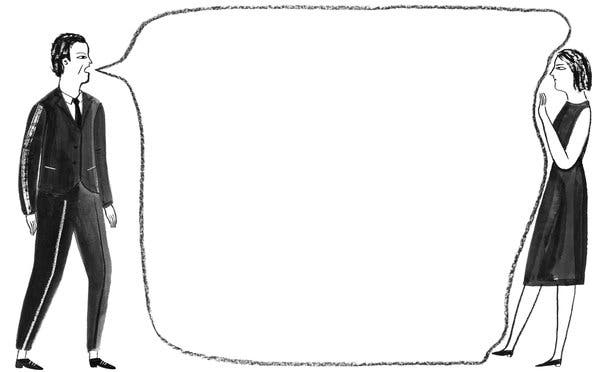The art of “mansplaining:” Please make it stop

A typical school day. As I’m sitting in class, waiting for the final bell to ring, I overhear a conversation. “Mansplainer,” a young girl shoots at her friend with a vengeance.
As many will attest, the phenomenon known as “mansplaining” is a constant fixture in our lives. Mansplainers egotistically explain information when they assume their counterparts lack basic knowledge. Done in a condescending manner, this is a constant headache in the lives of many.
Since 2008, “mansplaining” has been a term used to describe the overbearing, needless or patronizing explanation of something. Many mansplainers exploit situations to demonstrate their mastery of a topic, regardless of the audience’s prior knowledge or level of enthusiasm.
While commonly a behavior attributed to men, it would be fallacious to assume women incapable of behaving in a similarly patronizing manner. There have been several instances where I have been guilty of this transgression.
All of us have a friend who seems to drone, waxing on about unimportant events as you shoot an amused glance at someone over their shoulder. Their anecdotes have long since become uninteresting.
The solution? I propose an end to “mansplaining.” Ask your friend before you endeavor to help them when they are struggling. Remember that other people see issues from different perspectives. Patience is a virtue, and watch the way you interact with others.
When someone is acting in a patronizing manner, you are transformed into the petulant child. “Mansplaining” benefits no one in the long run, so it is best to just watch before you speak.
When having a conversation with friends, treat them as an equal. Always remember that they are on the same level, and your words matter.
A minor nuisance, people treating you with a lack of respect can be demeaning and damaging to your mental health. I believe that “mansplaining” is something that we should collectively decide to not worry about. Let’s leave it in 2019, please!

